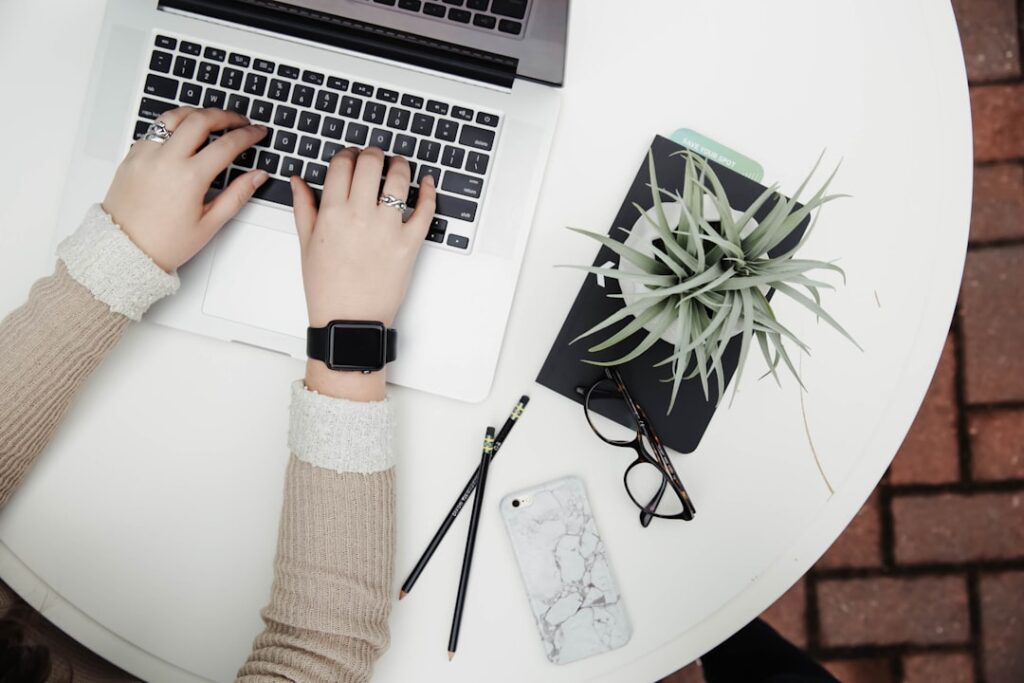Doing extensive research on the business and the position you are applying for will help you prepare well before a job interview. To start, thoroughly read the job description to ascertain the main duties and specifications. With this information at hand, you can customize your interview responses to emphasize how your qualifications and experience meet the needs of the business. To show that you genuinely care about and comprehend the company’s industry, look into its mission, values, and most recent advancements. Practice your answers to ensure clear and confident articulation during the interview.
Key Takeaways
- Research the company and position before the interview
- Practice common interview questions and your responses
- Choose a quiet and professional setting for the interview
- Dress professionally to make a good impression
- Use clear and professional language during the interview
- Prepare questions to ask the interviewer
- Follow up with a thank-you note after the interview
Anticipate common interview questions such as “Tell me about yourself,” “What are your strengths & weaknesses,” and “Why do you want to work for this company?”. Provide particular instances from your prior experiences that highlight your abilities and successes in order to offer verifiable proof of your credentials. Making an impact on the interviewer with this approach will help you do well.
You can ace the interview process by being well-prepared and knowledgeable. Practice your responses aloud. Spend some time practicing your responses aloud, either in front of a mirror or with a close friend or relative. You’ll feel more at ease talking about yourself and your experiences as a result, which will help you come across as more polished and confident during the interview. Edit Your Responses and Point Out Any Weaknesses.
You can improve your answers & make sure you’re conveying your qualifications and excitement for the job by practicing your responses. Think about filming yourself responding to interview questions, then watching the footage afterwards. This will enable you to monitor your performance on camera and pinpoint any aspects that require enhancement, like your vocal inflection, body language, or verbal tics. Enhance Your Interview Preparation. You can better handle unforeseen questions during the interview and project the best possible image of yourself by practicing your responses beforehand. You should practice your responses until you feel prepared & confident because, as they say, practice makes perfect.
| Tip | Description |
|---|---|
| 1 | Research the company and the role |
| 2 | Prepare your answers to common interview questions |
| 3 | Practice speaking clearly and confidently |
| 4 | Choose a quiet and professional environment for the call |
| 5 | Ask questions about the role and the company |
On the day of the interview, it is crucial to select a discreet and formal setting for the discussion. Pick a spot where you won’t be distracted or interrupted whether you’re conducting the interview in person or via video call. If you are conducting the interview at home, locate a peaceful space with little outside noise and make sure that no family members, pets, or children will bother you.
If you are doing an in-person interview, get there early and give yourself some space before going inside. Also, ensure your background is neat and professional if you are taking part in a video interview. Select a background that is neutral and devoid of any personal belongings or clutter that might be distracting. To avoid any technical difficulties during the interview, you should also test your video conferencing software and internet connection beforehand. You can concentrate on the topic at hand & conduct yourself professionally by choosing a calm and polished setting for the interview.
Appearing professionally at a job interview is another crucial component of making a good impression. Dressing appropriately for the interview is important because it can greatly influence the interviewer’s perception of you. Examine the dress code of the company and try to wear something a little more formal than what is normally worn to work.
Consider dressing professionally, such as in a suit, to show that you take the position seriously if the workplace has a business casual dress code. To make sure you look put together and professional, you should also pay attention to your personal hygiene and grooming. This entails keeping your nails clipped, washing and ironing your clothes, and styling your hair. Keep in mind that first impressions matter, and putting on a professional appearance will show the interviewer that you are serious about the position and dedicated to presenting yourself in a professional light.
You can project confidence and leave a good impression on the interviewer by dressing appropriately for the situation. It’s critical that you express your ideas and experiences during the interview in a clear, professional manner. Slang and colloquial language should be avoided in favor of speaking clearly and articulately.
This will show the interviewer that you are capable of representing the company professionally & that you are a professional. You should also be aware of your body language and tone of voice to project enthusiasm and confidence for the role. Remember to use appropriate hand gestures, sit up straight, and maintain eye contact as additional nonverbal communication strategies. Employers value engagement and confidence in candidates, and these nonverbal cues can communicate these traits.
All things considered, speaking clearly & professionally will help you convey your qualifications to the interviewer and leave a good impression. This is the revised text with the additions of 3–4 Showing Interest and Information Gathering. In order to demonstrate your interest in the job and learn more about the expectations & culture of the organization, it’s imperative that you ask insightful questions during the interview. Make a list of questions ahead of time to ask the interviewer at the conclusion. Some topics to cover include the company’s objectives, team dynamics, and areas for improvement.
You can show the interviewer that you’ve done your homework and that you really want to know more about the business by doing this. Obtaining Important Knowledge. You can gain important insight into whether the company is a good fit for you by asking questions. To learn more about the company and what it would be like to work there, think about enquiring about its work-life policies, advancement prospects, and values.
A Conversation with Both Parties. Keep in mind that an interview is a two-way discussion, so make the most of the chance to ask questions that will enable you to decide whether the company shares your values & career aspirations. Choosing Wisely. To find out if the company is a good fit for you, you can obtain the necessary information by carefully considering the questions you ask. You will then be able to decide for yourself whether or not to take the opportunity further.
It is crucial to send a thank-you note as soon as the interview is over to convey your appreciation for the chance to interview for the job. Thank the interviewers for their time and reiterate your interest in the job in a personalized email to each of them. Take this chance to briefly discuss a particular aspect of the interview that spoke to you or to restate how your qualifications match those the company is seeking. Also, take advantage of this follow-up email to address any materials or additional information that were discussed during the interview. Use this email as a chance, for instance, to comply with requests made to you for references or samples of your work. This will show the interviewer that you are professional and detail-oriented, which may make a lasting impression.
Ultimately, expressing your continued interest in the job and making a good impression on the hiring team can be achieved by following up after the interview. As a result, meticulous study, practice, & attention to detail are all necessary for job interview preparation. You can improve your chances of getting the job by being well-prepared, researching the company and position, practicing your answers, selecting a professional setting, dressing appropriately, speaking clearly, asking insightful questions, and following up after the interview. Recall that an interview is a chance for both sides to determine whether there is a good fit, so treat it as a two-way discussion in which you can highlight your credentials and learn important information about how the company fits with your values and career aspirations. You can go into your next job interview with professionalism and confidence if you prepare thoroughly & pay close attention to details.



